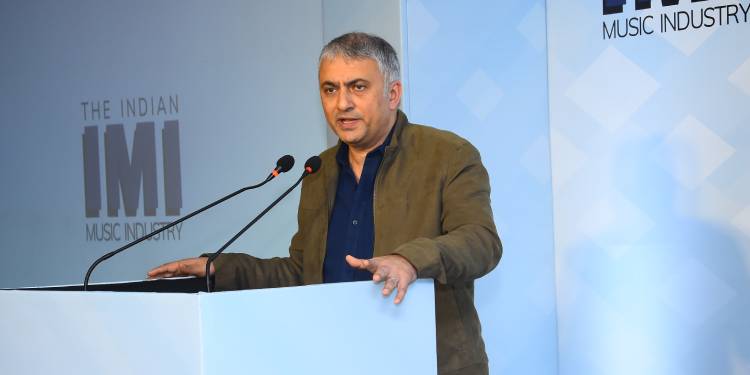The music streaming business has been built on this unsustainable platform whereby they pay the music producers but don’t make money, contended Vikram Mehra, Chairman, Indian Music Industry (IMI), at an IMI Conclave in Chennai on 9 February 2023.
“I don’t understand how a business works that way. The interest of many of these companies was to increase their valuation. To increase valuation, a metric used is Monthly Active Users or Daily Active Users. The more the users, the higher the price of the company. So all of them were acting to increase MAUs and gave a damn to the pay business; they just wanted to push the free business. Rightfully then, we were saying, ‘You are increasing your valuation. Why will we not charge you money?’” he said.
But things will change and a shakeout is expected, said the Managing Director of Saregama India.
“We have already seen pressure on one of the platforms – Gaana. There are one or two others which are in a shaky state. Please be prepared that in the short run, one, two or three of these platforms may just vanish. Because they may not be able to sustain this. But overall, the industry will become stronger. I strongly bet that in 18 to 24 months, the streaming platforms are going to turn pay in India. There are 550 million people paying for streaming across the world. Why should India be any different? Even video streaming is doing very well in India if you see the paid subscribers of Hotstar, ZEE5, Sony Liv, Amazon Prime – they are doing decent numbers and also growing rapidly. I have every reason to believe that there is something similar going to happen in the space of music.”
While streaming platforms’ going pay is good news, the coming 18 to 24 months are going to be tough, underlined Mehra. There will be pressure on numbers for music producers while the streaming industry gets streamlined, he underlined..
Despite a drop in YouTube’s global ad revenues in the Oct-Dec 2022 quarter and start-up money drying up, Mehra stated that in India, he expects that advertising revenue on YouTube has not and would not be hit. On short form videos, a variable model that included ads would augur well, he contended.
On the subject of public performances during weddings, Mehra conceded that weddings are religious ceremonies and hence music should not be charged for, but posed a counter.
He questioned, “I respect that religious sentiment, but there is only one function which is a religious ceremony. There are other functions – there is a bachelorette party, a bachelor party, a sagai (engagement) function – where alcohol is flowing, big singers are roped in and paid big money for. Why shouldn’t music be charged at that particular time?”
While the music industry should expect people to pay, it should work towards a single licence and a realistic fee, surmised Mehra.

















